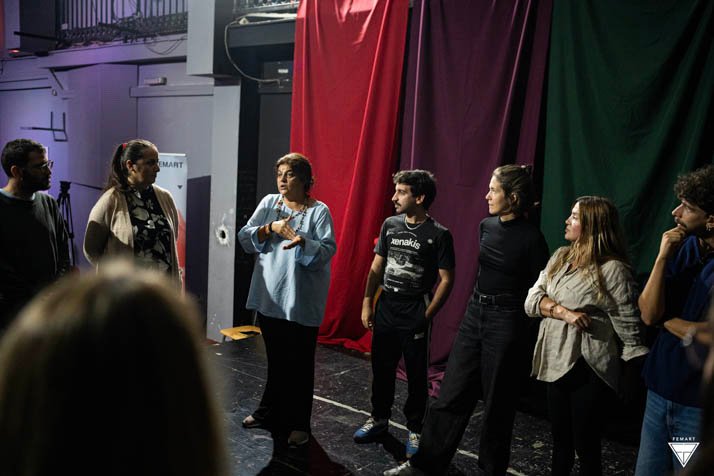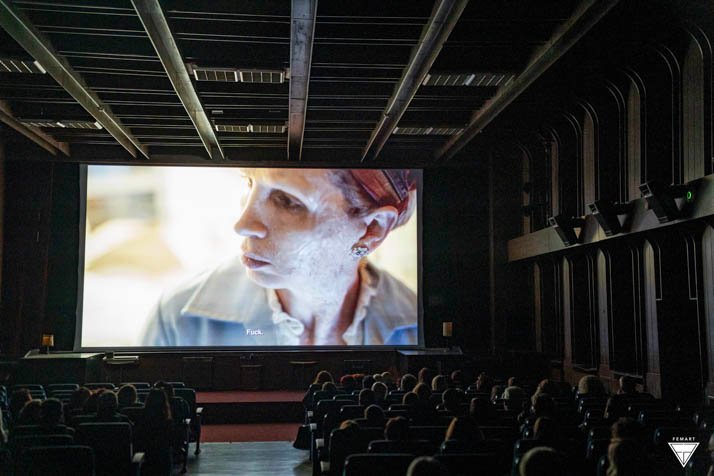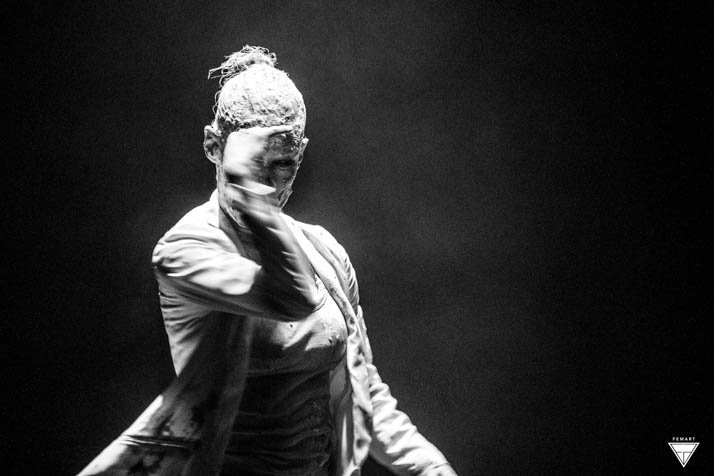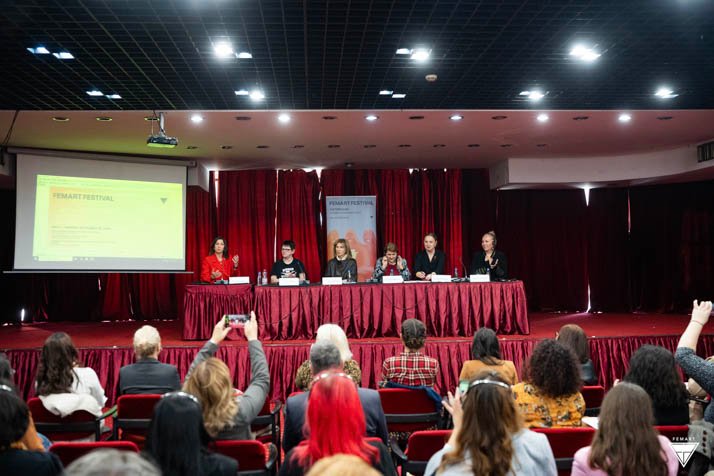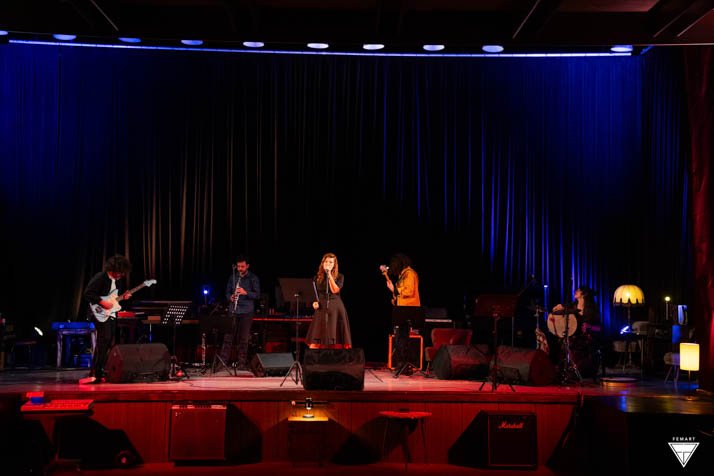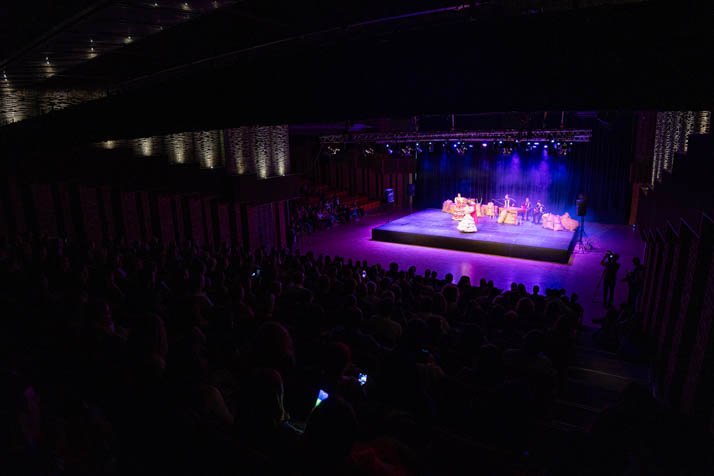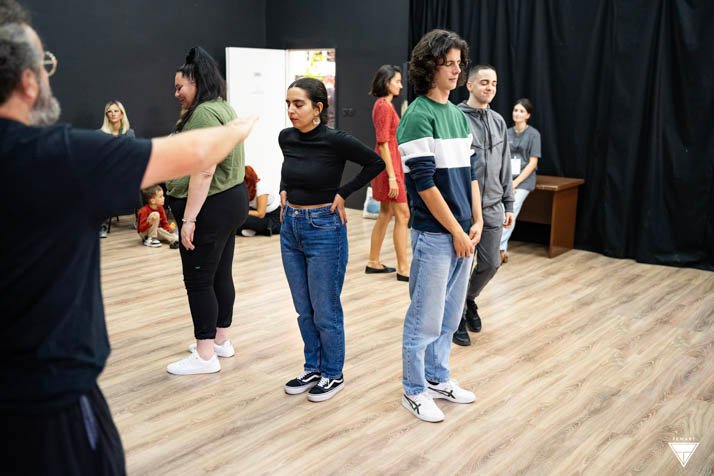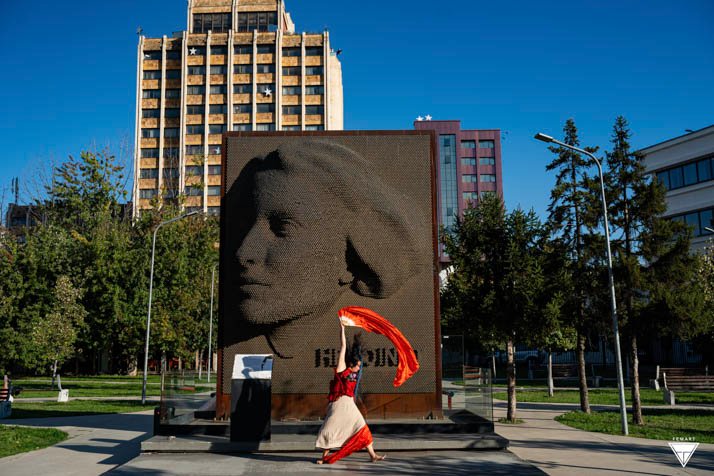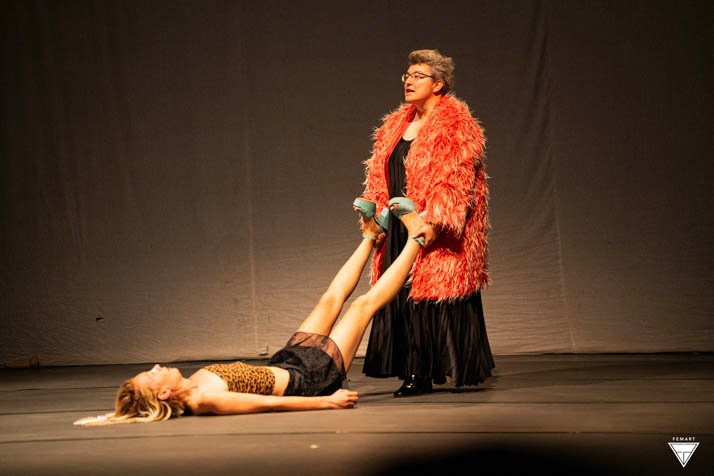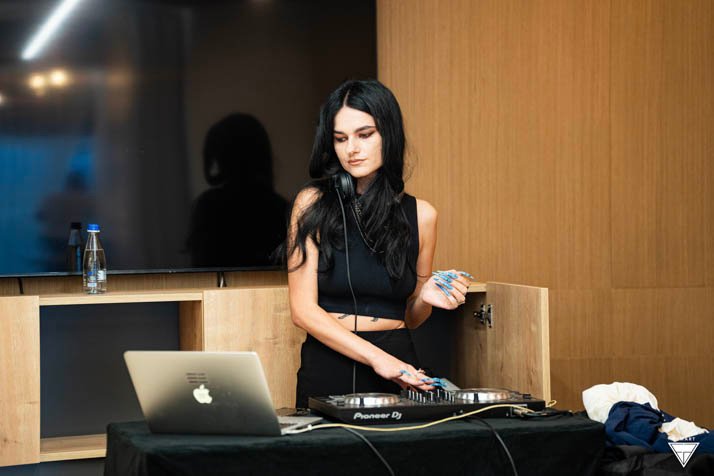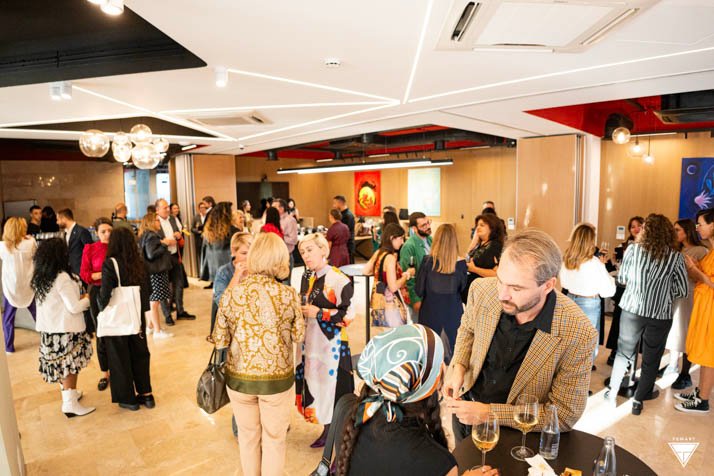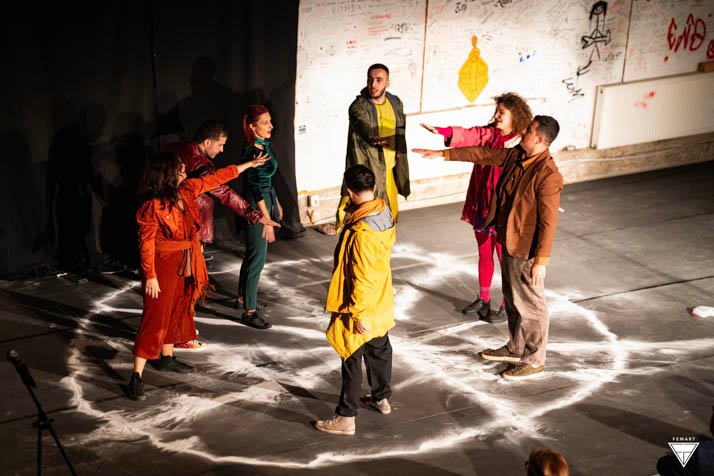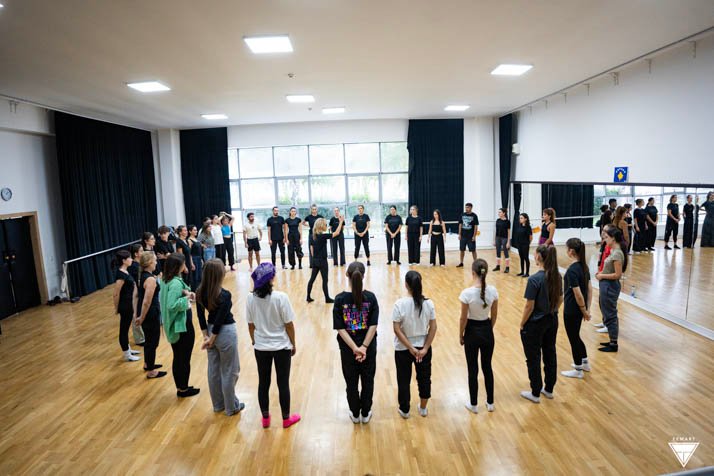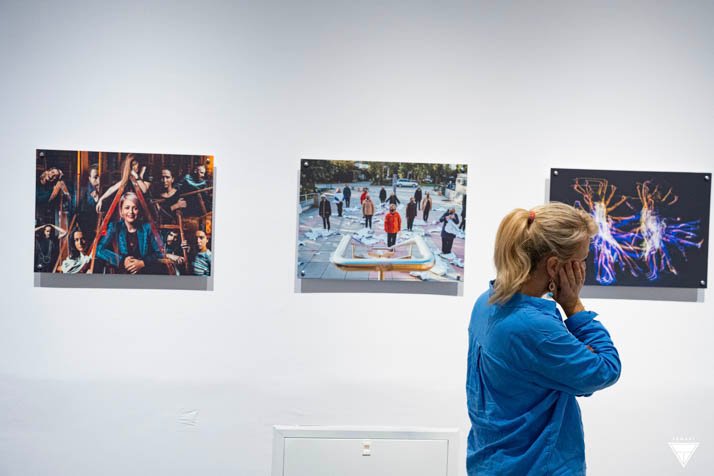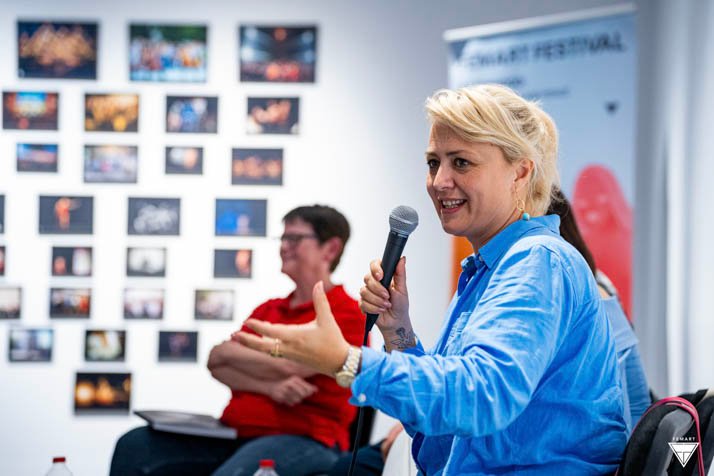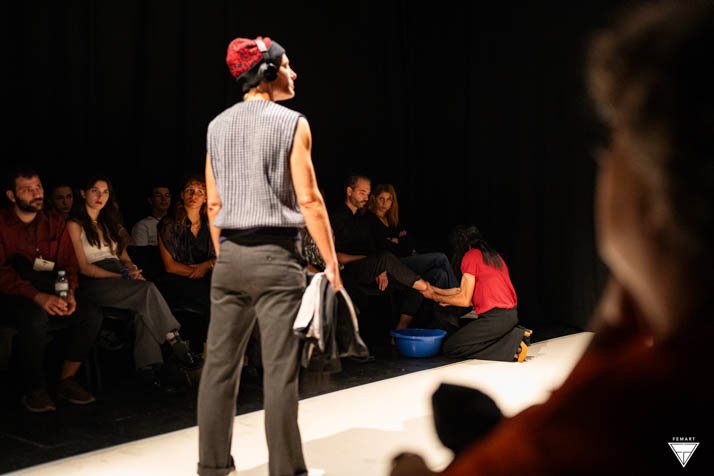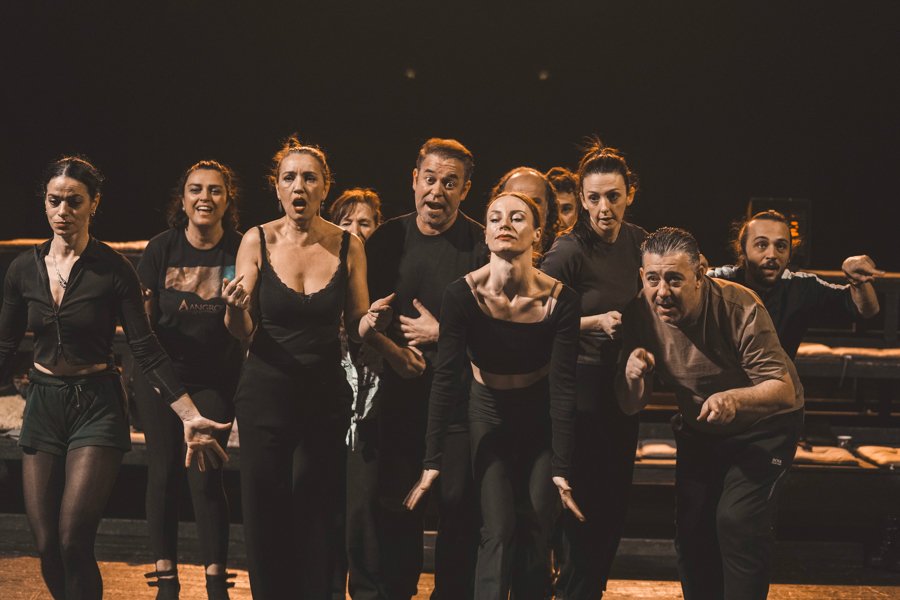
Fragments from the Rehearsals of “Cabaret 1999”
December 24, 2025

25-30.09.2024
This year, we celebrated 12 years of feminist artistic activism at the FemArt Festival. Over 200 artists and activists from 20 countries participated in 30 diverse activities, each contributing to our mission for equality, justice, and peace through the power of sisterhood—especially crucial in times when human values are threatened by conflict, tension, and oppression.
“Sisterhood: In Time of War and Peace” was this year’s theme of the Festival that connected participants across various venues, from theaters to galleries, libraries, and cinemas. The festival showcased a vibrant array of events, including film screenings, feminist discussions, music concerts, exhibitions, theater performances, workshops, conferences, and publications, all fostering a spirit of collaboration and resilience.
From September 25-30, 2024, a vibrant array of cultural activities unfolded across various venues—Klan Arena, Oda Theater, Dodona Theater, Termokissi, Kino Armata, “Hivzi Sulejmani” Library, Faculty of Arts Gallery, Hotel Grandi, Faculty of Arts, Shota Ensemble Spaces, Finnish School, the Embassy of Luxembourg, the French Institute, and Heroinat Park. These spaces served as gathering points for reflection, discussion, entertainment, and cultural exchange.
The festival opened with the captivating performance of “Carmen” by the Barcelona Flamenco Ballet. This piece echoed themes of freedom and women’s empowerment. As Gili Hoxha writes in her blog, “Carmen, in her duets, gives her all to love, yet when alone, her movements reveal a deep quest for freedom and autonomy. This is a Carmen who defends her liberty and cherishes it.” Through these performances and interactions, we celebrated the strength of sisterhood and the journey towards empowerment. Rebel. Drenched in her world. Rhythmic music infused with elements of traditional Spanish melodies effortlessly transforms into an anthem of freedom, capturing the essence of rebellion.
Social norms and patriarchal oppression were boldly challenged through a series of powerful performances and theatrical shows. Among these was “The Big Giggle” by Xixi Xiao, which graced the Heroines’ Park on the festival’s second day. Other notable works included the theatrical piece “World Without Women” by Serbian artists Olga Dimitrijevic and Maja Pelevic, the premiere of the dance theater performance “O Lord, O Lord, O Lady of the House” by Robert Nuha, the play “Sonny” by Slovenian artist Natasha Zhivkovič, and “Revolt. She Said. Revolt Again,” directed by Zana Hoxha. The French artists Caroline Sahuquet, Delphine Biard, and Flora Grimaud also presented “Speculum.” Each of these performances conveyed a unified message—calls for freedom, equality, and justice in a world where peace and solidarity reign among and for women.
This year’s FemArt program also delved into themes of migration with “I Want a Country,” directed by Ema Andrea from Albania, and explored existence through the performance “In Memoriam” by Sylvia Camarda. In this moving piece, every movement, step, and gesture transcended the boundaries of life and death, leading us on an engaging journey through the stages of human metamorphosis. In this performance, death transformed into a celestial dance, where each motion told a story of hope, resilience, and renewal.
This year, FemArt provided audiences with opportunities to reflect on war, peace, and LGBTQI+ rights. Over two days, Kino Armata showcased a variety of films, including the documentary “Trained to See: Three Women and War” by Luzia Schmid, the animated short “Self Story” by Géraldine Charpentier, “A Sister” by Delphine Girard, “The Ephemeral” by Jorge Muriel, “Afterwar” by Birgitte Stærmose, “The Leading Actor” by Paula Markovitch, and “The Art of Encounter” by Marinka Limat. The festival also focused on the growth of emerging artists through workshops led by Sylvia Camarda, Shpëtim Selmani, Attila Antal, Xixi Xiao, and Georgina Kakoudaki, fostering inspiration for future generations of feminist activism.
Discussion panels and the Peace Conference highlighted the voices of women activists, emphasizing calls for peace, justice, and equality. The event celebrated women’s vital roles in promoting peace during times of conflict, bringing together feminist activists from Kosovo, Serbia, Ukraine, and Palestine.
The discussion panels titled “Femicid,” “The Voice of Women Poets: Solidarity and Empowerment through Poetry,” and “Beyond Barriers: Inclusivity in Culture and Art,” along with the publication of a Manual for the Visually Impaired, brought together activists and key figures from important institutions to address these critical issues with sensitivity and significance. These discussions served as a source of reflection and inspiration, urging us to engage daily in making our society better for everyone. Additionally, through the publication of a Monograph, an exhibition, and a discussion panel, FemArt honored and recognized the contributions and dedication of many women artists and activists who infused pieces of their souls into the pages of this book. Edited by Ivana Bilić, the Monograph not only preserves memories but also creates a lasting testament to feminist strength and courage that resonates across time. Curated by Berat Bajrami, this exhibition celebrated a decade of feminist artistic activism in Kosovo through the FemArt Festival.
The FemArt Festival was illuminated by the enchanting performances of Lucia de Carvalho and Vjollca Robelli – Mripa (AJO), who magically brought their concerts “Pwanga” and “Braids” to our audience. This musical journey celebrated the past while offering hope for the future.
FemArt serves as a platform for artists and activists to build bridges of collaboration, and this edition was no different. Participants had the opportunity to connect, exchange ideas, and inspire partnerships during the “Networking Event,” hosted by the Luxembourg Embassy in Prishtina, accompanied by the music of DJ Matale.
Expressing deep gratitude to all donors, sponsors, and institutional partners, Zana Hoxha, founder and director of the FemArt Festival, shared her enthusiasm for yet another successful edition of the festival.
“I’m incredibly proud of our team. While we’re understandably exhausted by the end, we feel deeply satisfied with the artistic values and themes that we explored together. This year’s theme struck a chord with the audience, and I’m thrilled that everything unfolded as we hoped—sometimes even better. It’s a joy to wrap up the festival tonight after six nights filled with 30 diverse activities,” said Zana Hoxha.
The festival attracted guests from various countries across Europe and beyond, highlighting how sisterhood transcends both familial bonds and national borders.
We also extend our heartfelt gratitude to the FemArt audience. Over 2,000 attendees immersed themselves in a captivating array of musical sounds, feminist narratives, and the stories of FemArt captured in our book. The discussions ignited reflection and shared experiences, uniting us in sisterhood.
Key Results of FemArt 12
Social Media Reach:






